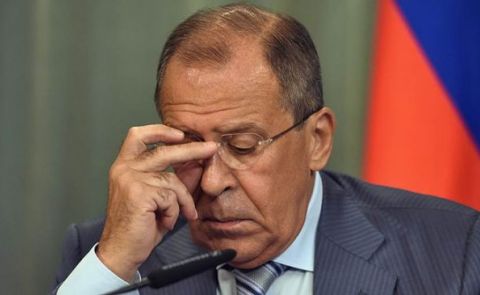
Berlin: Pashinyan's viewpoints on the Nagorno-Karabakh conflict

At a joint press conference with German Chancellor Angela Merkel in Berlin on 1 February, Armenian Prime Minister Nikol Pashinyan declared that Azerbaijan's unwillingness to recognize the internationally unrecognized Republic of Nagorno-Karabakh as one of the parties to the conflict would dampen the hope for progress in the negotiation process. "I have already said that a solution to the conflict should be acceptable to the peoples of Armenia, Nagorno-Karabakh and Azerbaijan. I had hoped that Azerbaijan would follow up with a similar declaration. Unfortunately, we have not heard such a thing yet. Unfortunately, since there are no such statements from Azerbaijan, we have no great hopes that we will progress in this process", said Pashinyan. However, during the same press conference, Pashinyan spoke of two conflicting parties: "We also talked about the current state of the Nagorno-Karabakh conflict, and it has been confirmed by both sides that the process, which is going on there, should take place under the active participation of both sides - of course this means both sides of the conflict". Chancellor Angela Merkel also spoke of two conflicting parties in her speech: "[...] Of course, this must be based on reciprocity. It cannot be that only one side shows goodwill; rather, it has to come from both sides".
Two days before the press conference, at the meeting with the Armenian diaspora in Cologne, Pashinyan expressed that the formula of "exchanging territories for peace" was not up for debate in regards to a conflict resolution.
Nikol Pashinyan's recent comments on the conflict caused sharp criticism from Baku. The press secretary of the Azerbaijani Foreign Ministry, Leyla Abdullayeva, referred to the resolutions of the UN Security Council calling for the immediate withdrawal of Armenian troops from the occupied territories. In all documents adopted in connection with conflict resolution and in the proposals of the co-chairs of the OSCE Minsk Group, there has been no reference to the "people" of Nagorno-Karabakh, but of the population of Armenian and Azerbaijani origin, according to Abdullayeva.
The former foreign minister of Azerbaijan, Tofig Zulfugarov, believes that Pashinyan's comments in Berlin in fact leave no room for a peaceful solution to the conflict. Rather, they testify to the growing radicalization of his position. "This statement by the Armenian Prime Minister is aimed primarily at officials in Baku and also at a domestic audience. This is a very serious statement, which is indeed a stop sign for all attempts to resume negotiations ... It is not clear on what basis this peace should be built", said the former foreign minister.
Since the "Velvet Revolution" in Armenia, there has been growing hope among the international community that the change of power in Yerevan would provide a new impetus to the peace talks between the hostile South Caucasus states. In fact, in recent months there has been relative calm on the contact line. A hotline between the military of the two countries was established after a brief meeting between Nikol Pashinyan and Azerbaijani president, Ilham Aliyev. The foreign ministers of the two countries have met four times within the past six months. Most recently, the two ministers met in Paris, after which they stated that they had "agreed on the need to take concrete measures to prepare the people for peace". The next meeting of the Azerbaijani and Armenian foreign ministers will be held in February, under the co-chairmanship format of the OSCE Minsk Group.
Under international law, the Nagorno-Karabakh region belongs to Azerbaijan, but it is occupied by Armenia, which sees itself as the security guarantor of the Karabakh Armenians. The government of the Federal Republic of Germany considers Nagorno-Karabakh and the seven surrounding areas as part of the Republic of Azerbaijan.
Currently, the occupied territories are inhabited almost exclusively by Armenians. The Azerbaijani population was expelled from the region during the Armenian-Azerbaijani war in the 90s. The OSCE Minsk Group under the co-chairmanship of Russia, France and the USA, has been mediating since 1994 in the search for a peaceful solution to the conflict. A success has not yet been achieved.
See Also

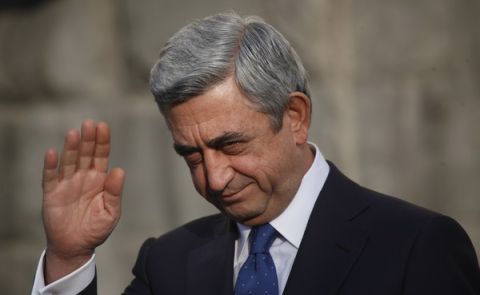
Serzh Sargsyan Rejects Charges, Backs Impeachment, and Warns of Secret Deals
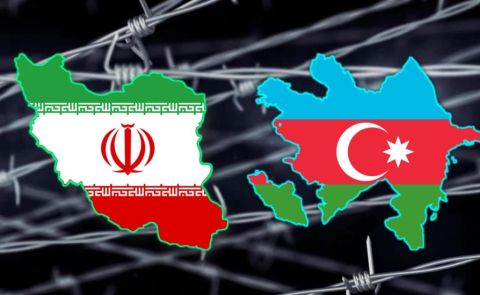
Azerbaijan Confirms Execution of Terrorist Behind Embassy Attack in Iran
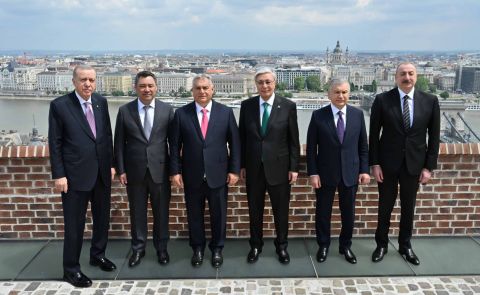
Turkic Leaders Adopt Budapest Declaration, Emphasizing Peace, Trade, and Digital Connectivity
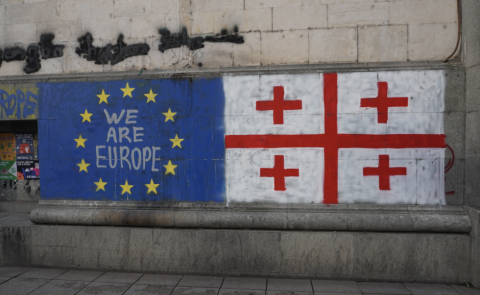
International Officials Criticize Georgian Dream Amid Democratic Concerns

